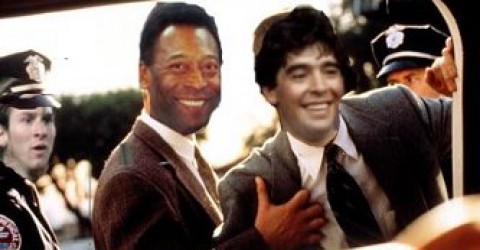Let me take you back to Sunday morning.
Tottenham fans up and down the country were looking forward to their day out at Wembley, many believing their FA Cup semi-final against relegated Portsmouth was a foregone conclusion.
After all, Avram Grant’s side were without arguably their best player in Jamie O’Hara, and had lost much of their squad over the last 18 months.
Fast-forward a few hours and Spurs fans take to the forums, complaining that Pompey were playing by their own rules, bringing the game into disrepute, and didn’t deserve their place in the final. Sour grapes, or do they have a point?
Portsmouth’s financial woes have been well documented over the 12 months since Alexandre Gaydamak sold the club, but the problems may go back even further than that.
David James revealed the punishing effects of unexpected bonuses when Pompey lifted the FA Cup and qualified for Europe in 2008, and one might argue Gaydamak did well to sell up and get out while he could.
But since the Russian’s departure the club has had numerous owners, none of whom managed to arrest the seemingly inevitable slide into administration.
They have since struggled to pay players, and some would say they acted beyond their means in fielding a senior team against Tottenham.
The main case in point is Aruna Dindane. The Ivorian’s appearance in the semi-final ought to have triggered a £4m payment to former club Lens, but Grant’s team managed to reach an agreement with the French outfit.
But Lens surely would not have agreed the original sale if they knew Portsmouth had absolutely no intention of paying for the international striker. This is particularly pertinent when you consider Les Sang et Or are also allegedly owed payments for the 2008 transfer of Nadir Belhadj to the south-coast side.
Furthermore, due to the constraints of administration, Pompey did not apply for a UEFA licence. Now they have reached the final they are seeking to appeal a decision which they essentially made themselves, in an attempt to qualify for a competition one of their own players has admitted helped orchestrate their downfall.
Harry Redknapp’s side have the right to feel aggrieved about the Dindane fiasco. The fact that he won the clinching penalty is academic, however. The important thing is Portsmouth reaching this stage of the competition is founded on ‘buying’ players they could not afford.
But was this not also the situation when Redknapp himself was manager at Fratton Park? Rumours have been circulating that the club still owe Udinese £4m for the signing of Sulley Muntari during Redknapp’s tenure, and multi-million pound sales of Muntari himself and Lassana Diarra have been insufficient to generate the funds needed to pay a backlog of transfer installments.
Is the significant difference between Portsmouth and so many other Premier League sides simply the fact that other owners are willing to continue bankrolling debt-ridden clubs when the going gets tough?
Tottenham themselves were shown to be £65 million in debt, according to figures published last year, yet chairman Daniel Levy continues to fork out multi-million pound fees on fringe players such as Kyle Naughton and Kyle Walker.
Without such a benificent owner, Tottenham might find themselves in the same situation as last Sunday’s opponents, at which point talk of ‘existing beyond their means’ could well go out of the window.



